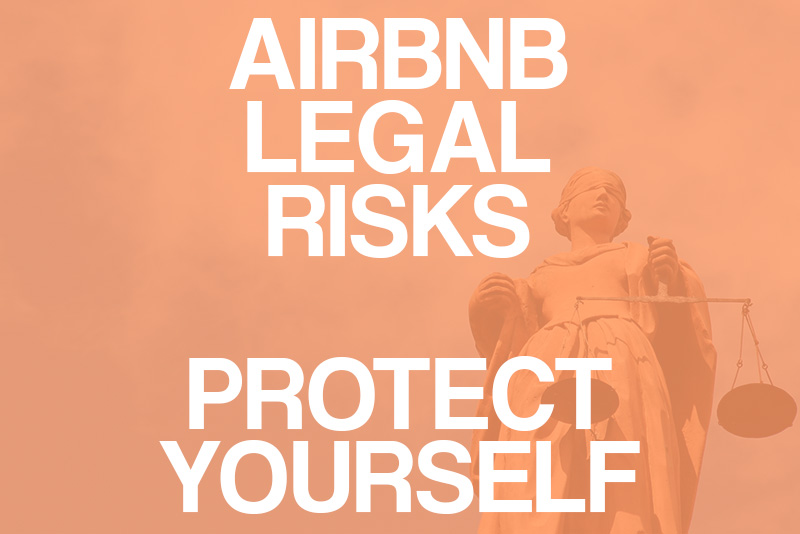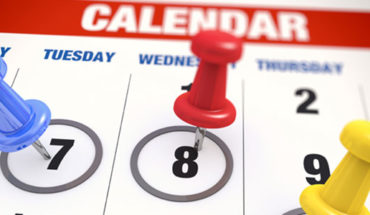
Any disruptive startup which rockets to global popularity can expect to be the recipient of a little controversy, right? However, Airbnb has tapped into two overlapping demands that have fueled its success:
- Travelers seeking cheaper alternatives to hotels, and
- Homeowners and renters seeking to make a little extra income
Let’s Be Real
While stories abound of Airbnb hosts making solid extra income (even six-figure incomes!), becoming a host and succeeding takes serious commitment.
There are important considerations that each prospective host should consider prior to jumping in with both feet.
Airbnb Legal Risks
If you are an Airbnb host or are considering becoming one, here are the basic outlines of the six issues you will have to approach seriously to ensure you stay within the bounds of the law while federal, state, and municipal regulations shift gears to fit this new mode of the service industry.
1) Check Your City’s Laws
You need to take responsibility and stay up-to-date about the regulations in your city regarding short-term rentals.
Carefully examine the zoning laws, and establish if the type of property you live in falls within the allowable limits.
Check how many days per year you will be allowed to sublet. This can be quite complicated, especially as the goalposts are constantly shifting.
The consequences of operating illegally can be harsh. Fines in New York and San Francisco are especially steep. It’s hard work, but do your homework first and save yourself A LOT of pain later.
2) Register, Get a Permit or Obtain a License
Again, you will have to do your homework with this one. In some cities, if you want to operate a short-term rental, you’ll have to register and apply for a permit.
Again, unregistered properties listed on Airbnb could see their owners receive a nasty fine.
Cities like Boston and San Francisco are trying to crack down on illegally run hotels where large commercial enterprises exploit the system and run under the guise of Airbnb.
3) Pay Your Taxes
Airbnb has consistently refused to hand over private data on the owners of Airbnb rentals, as it should to protect host privacy.
But that has allowed many hosts to evade paying taxes to their cities. It’s no surprise that some cities have fought back with tough new regulations.
And just because many others are skipping on taxes, it doesn’t mean you should too. Airbnb may eventually release that information to the cities in order to continue operating in those cities.
You don’t want to find yourself with a surprise back-payment and a fine when the tax office finds out.
Also, don’t expect Airbnb to step in and save you. Be a responsible citizen, keep your financial books in order and own up to your extra income stream.
4) Check Subletting is Permitted
If you own your property, then that’s a different matter…you may need to check the HOA or condo association bylaws.
It would seem a large number of Airbnb hosts lease their apartments, a fair few of whom neglect to check their lease agreement and see if subleasing is permitted.
There have been more than a few cases of Airbnb hosts being evicted by their landlords on these grounds – even the poster child of one of Airbnb’s advertising campaigns who gave stranded tourists free shelter during Hurricane Sandy was evicted just months after the event hit national headlines when her landlord wised up to her sideline operation.
Not every landlord will be happy about you handing over the keys to strangers you have interacted with only a few times online. It is much safer to ask first and seek written permission. Finding a new place to rent with that kind of black mark against your name could be pretty tough.
5) Take Out A Robust Insurance Plan
The cross-section of the Airbnb traveler demographic has wonderful, kind, and interesting people at one end, and nightmare guests at the other. Make sure you’ve got a robust insurance plan that will have you covered if your guest throws a wild party or sets your house on fire.
Your standard homeowner’s plan may not be enough either. While Airbnb promises coverage with its $1 million Host Guarantee, read the fine print closely, and you’ll see there are many eventualities and damages it will not extend to.
Don’t play a statistics game and think it will never happen to you. The hosts who took that risk in the past have truly regretted it.
Look I get it, some of you are going to be in markets where your listing won’t make enough to justify getting such a plan. But just know that you’re taking on additional risk.
6) Health and Safety
For now, it doesn’t seem like Airbnb rentals will be forced to comply with the same stringent health and safety regulations that apply to traditional service industries like hotels.
Nevertheless, it could quickly get nasty if you found yourself at the wrong end of a lawsuit if a guest was injured while staying at your property.
Do the sensible thing and have a careful read through Airbnb’s guidelines on Responsible Hosting.
This includes basic things like providing a first aid kit and a fire extinguisher, checking your smoke alarm and carbon monoxide detectors are functioning, ensuring the fire escape route is clearly marked out and providing the numbers of the local hospital and emergency services.
Most of all, fix and address any glaringly obvious danger traps where guests could hurt themselves or others. Make sure there aren’t any exposed wires, the ventilation is working, and the air conditioners and heaters are fully functional.
Establish safe occupancy limits and don’t allow more people to over the limit at any one time.
Stay Protected
We know that is a lot of homework, but choosing to host on Airbnb is not necessarily the safe and quick cash cow that it is cracked up to be. Being a host takes a lot of time and effort.
Although taking the extra precautions may cut into your net profits, in the long run, it may save you from heavy fines, being evicted, or being sued. Don’t add yourself to the long list of Airbnb horror stories which are piling up online.
Airbnb Infographic
Saskia Kerkvliet is an Editor at LegalTemplates.net, a company which is harnessing cutting-edge technology to help people create reliable legal documents at an affordable price. Follow us on Twitter @LegalTemplate





I’m a current month to month room renter at an Air B and B. I have lived at this home for 3 years plus. Unfortunately, the current Air B and B guest of now 2 months, is a 20ish year old convicted felon for robbery and theft and a heroine user. I have witnessed the guest on drugs. He now has lost his job, has no money to extend his stay and is becoming more agitated by the day has he will loose his room in 5 days. I have been extremely uncomfortable in this environment and now the harassement is now been directly witnessed by the host and the host did nothing except elevate and enabled this person’s behavior..
The hosts are a husband and wife that are rarely home, only in the evening so I am now locked in my room daily with a gun, locked and loaded for my protection.. I am a 54 year old women that pays rent monthly and is being intimidated and harassed by an Air B and B Guest.. The conditions at this location went from a hotel type environment to a half way house that is now scary on so many levels including unsanitary, unsafe property management, (currently healing from a slip and fall on the property) cold and hot conditions because they will not keep the temps comfortable and now you are restricted on using lights in the stairwell and hallway leading to the 2 rental rooms… When I move I will be relaying the address of this Utah home on Yelp as well as filing a complaint to Air B and B directly. As for now my hands are tied in regards of getting help from my landlord for fear of retaliation..
holy sh*t, good luck
Where &when is it mandatory for a landlord to give free or reduced coupons for certain city amenities? From what I understand, this has something to do with taxes.
This is going to be different for each locality. Don’t assume what is true somewhere else is also true in your area without verifying first.
Fire regulations should be mandatory with checks from Fire Department to see if they are in compliance.
I live in an apt building and my landlord decided to Airbnb the unit above me and it’s constantly noisy. Is there anything I can do other than complain to the managers about the noise?